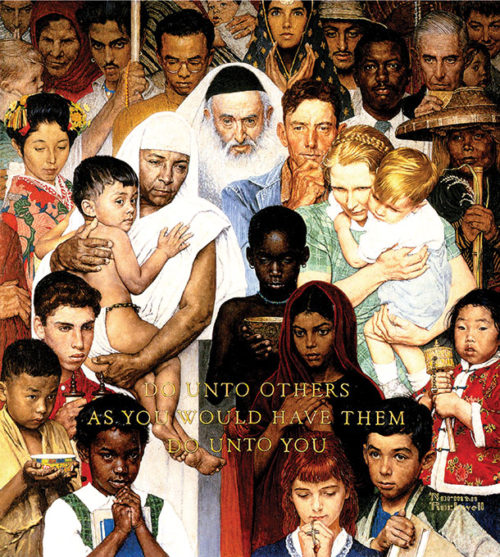
For Norman Rockwell, the 1960s marked a period of change. The mood of the country was shifting. The rising popularity of television in American homes fed a culture fascinated with celebrity. Catering to popular taste, many magazines began using photographic covers (frequently portraits) in place of illustration. While he would hold his position as the Post’s premier illustrator for a few more years, Rockwell could see the writing on the wall. At the same time, on a personal level, Rockwell was still mourning his wife, Mary, who died suddenly in August 1959.
During this period, the artist began to explore social issues. “Most of the time, I try to entertain with my Post covers,” Rockwell said. “Once in a while I get an uncontrollable urge to say something serious.”
In the summer of 1960, inspired by the idea that the Golden Rule was a universal principle threading through all religions, Rockwell decided to capture the concept on canvas.
After preliminary sketches, he remembered an earlier piece, United Nations, that had never been completed. He found the unfinished 10-foot-long charcoal in the cellar and hauled it upstairs to his studio. “I had tried to depict all the peoples of the world gathered together,” Rockwell said. “That was just what I wanted to express about the Golden Rule.”
Some portraits were repainted from the original charcoal. Others were created afresh, using neighbors as models. The rabbi (center) was Stockbridge’s retired postmaster (a Catholic in real life); and Rockwell’s late wife, Mary, appears to his right holding the grandchild she never saw.
The work appeared on the April 1, 1961, cover of the Post. Reader response was overwhelmingly positive.
As a testament to the power of the image, a mosaic based on the painting was installed at the United Nations Headquarters in 1985. It was rededicated following its restoration in 2014.
Become a Saturday Evening Post member and enjoy unlimited access. Subscribe now
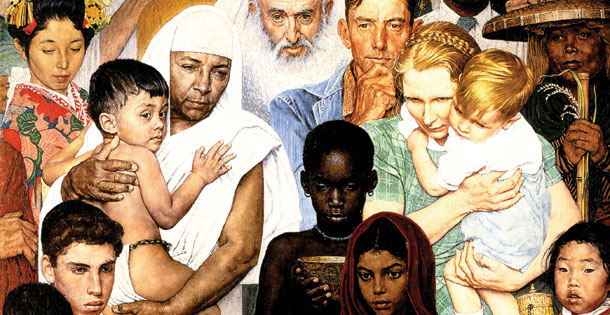
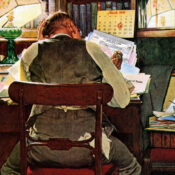
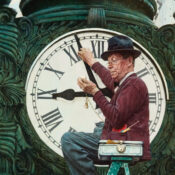
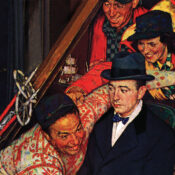
Comments
Norman Rockwell is my reason for joining.